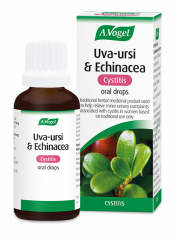The indignity of a weak bladder!
I bet you have asked yourself why you pee more in cold weather - many times - often while bolting up the stairs, ripping the coat off and cursing your jumpsuit! In my real, pre-lockdown life, I drive all around the South of Ireland for work and I can personally vouch that cold weather is the bladder's tormentor. I can think of no greater torture than making someone parallel park while they are urgently requiring a toilet. The trembles!
An increased need to pee in cold weather has a name - cold diuresis. It's a very well-researched phenomenon1. Observations were first noted in 1764 after cold-water bathing. The US military has studied it; ergo, we can conclude that it's not a 'women's issue'.
Why does cold weather make you want to pee?
This is the most popular theory: cold temperatures cause the blood vessels to constrict, reducing blood to the extremities and increasing supply to vital internal organs to try and warm them up. So, we conserve heat by keeping the body warm at the expense of the poor hands and feet. Because this means more blood running in a smaller area, blood pressure rises. The kidneys try to regulate this by filtering out the excess fluid, the bladder fills up quickly and so we are in and out of the bathroom more often.
My Self-Care Tip: Avoid cystitis by keeping the feet warm
It's really important to keep the feet warm especially if you are prone to UTIs. In this video, I tell you why this is so important and give my tips on keeping your trotters cosy this winter.
Can cold weather cause UTIs or cystitis?
It looks likely. One study found that just by cooling the feet, urinary tract symptoms and infection could be brought on in participants2. It's possible that cold diuresis caused by cold feet made these people more susceptible to developing UTIs. It's easy to get dehydrated when urine outflow increases. Drinking plenty of plain water and going to the toilet regularly flushes out anything that may cause trouble if allowed to hang out for long in the bladder.
- Keep wrapped up and warm if you are prone to UTIs like cystitis.
- Make sure that you are well hydrated. Water can feel freezing coming out of the tap and may not be comfortable to drink in the winter, so add a little hot water to the glass.
- Use cranberry juice or tablets as this may stop bacteria adhering to the walls of the bladder
How can I stop peeing too much in cold weather?
There are a few things that have been shown to negate the effects of cold-induced diuresis (CID) and stop those never-ending trips to the loo:
- Moderate exercise can help with blood flow - it keeps your feet and hands nice and warm. Because the blood isn't huddling around the organs, trying to keep cosy, the kidneys aren't working to reduce blood pressure by filling your bladder.
- Keep hydrated, even moderate dehydration can cause muscle stiffness that can deter people from wanting to get moderate exercise. It also affects concentration: you'll forget to have a drink of water.
- Keep warm, make sure that you are protected from cold weather and feel comfortable. Remember too that overdressing, especially when you are sitting down, can make you sweaty and more prone to dehydration.
My Top Tip:

Adults and children over the age of twelve to take 1-2 tablets daily with water.
"Certainly made a difference, will continue to use this product."










